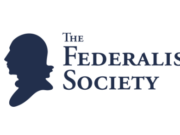This piece originally appeared in the Indianapolis Business Journal on October 10, 2025.
“Should teachers and other public employees who express personal and political opinions outside of their professional duties be held to account for them at work?”
Generally not, but court precedents make the answer surprisingly complex.
The First Amendment protects speech that most of us might find offensive or even reprehensible, and it directly applies to the question of whether the government may punish its employees for their speech.
But even with constitutional protections in place, the question is not so simple.
Teachers play a unique role in educating children and, in the case of younger children, are entrusted with their care. That’s why many public school contracts include clauses that reference morality or “moral turpitude” as a condition of employment.
It’s easy to imagine how a school could reasonably conclude that ill-conceived statements about Charlie Kirk’s assassination make someone unfit to continue teaching young children. But will the punishment meted out under that rationale stand up to constitutional scrutiny?
The legal framework courts often use to navigate these questions is known as the “Pickering Test,” established in the 1968 Supreme Court case Pickering v. Board of Education. This test weighs several factors when determining whether a public employee’s speech is protected. Subsequent court rulings further refined the test.
Speech on political issues—even offensive speech—usually counts as a “matter of public concern” and generally receives significant protection under the First Amendment. Context also matters. Remarks made on personal time and personal accounts are safer than those made at work.
Judges also consider whether speech interferes with workplace operations. For example, if a teacher’s inflammatory post directly caused disruptions in the workplace, discipline might be legally permissible. Teachers, as trusted public figures, might face higher standards than, say, a motor vehicle department clerk, because teachers’ words can affect public confidence in schools.
But what happens if government officials bring public attention to the remarks, and such promotion causes the disruption used to justify the punishment? The courts have yet to answer this important question.
Today, many public officials are drawing attention to remarks seen by only a handful of Facebook friends. Those officials might thereby create the disruption used to justify firing a teacher.
I suspect that most of the insensitive remarks about Kirk’s murder are due to widespread misinformation published about Kirk’s views and life. After his death, even The New York Times misreported that he was antisemitic, triggering a correction a day later.
Erika Kirk forgave the murderer, saying, “The answer to hate is not hate. The answer we know from the Gospel is love and always love.”
If Mrs. Kirk can forgive the assassin, public officials should reconsider their actions that both fan the flames of hate and pose a risk to free speech.
Instead of demanding people be fired, officials should realize that they are squandering teachable moments. They could teach about Kirk’s virtues of promoting public debate. They could privately meet with those who posted insensitive remarks and ask that they learn about what Kirk actually believed instead of the caricature painted by his critics.
And they could teach about the dangers of having the government decide what speech is permitted.














